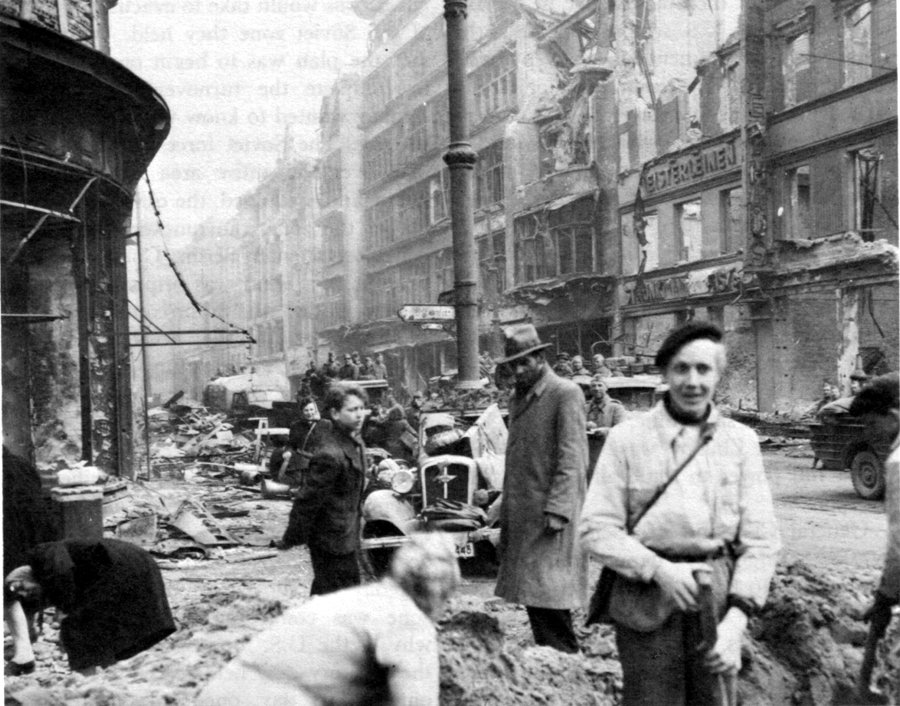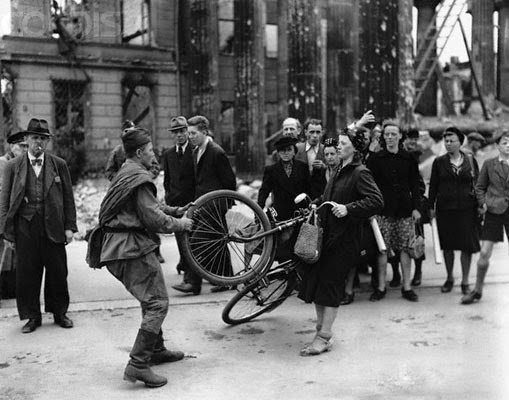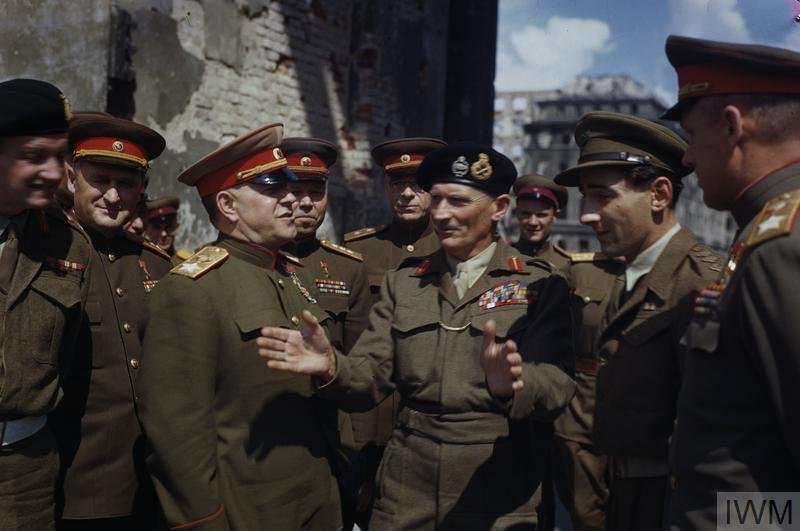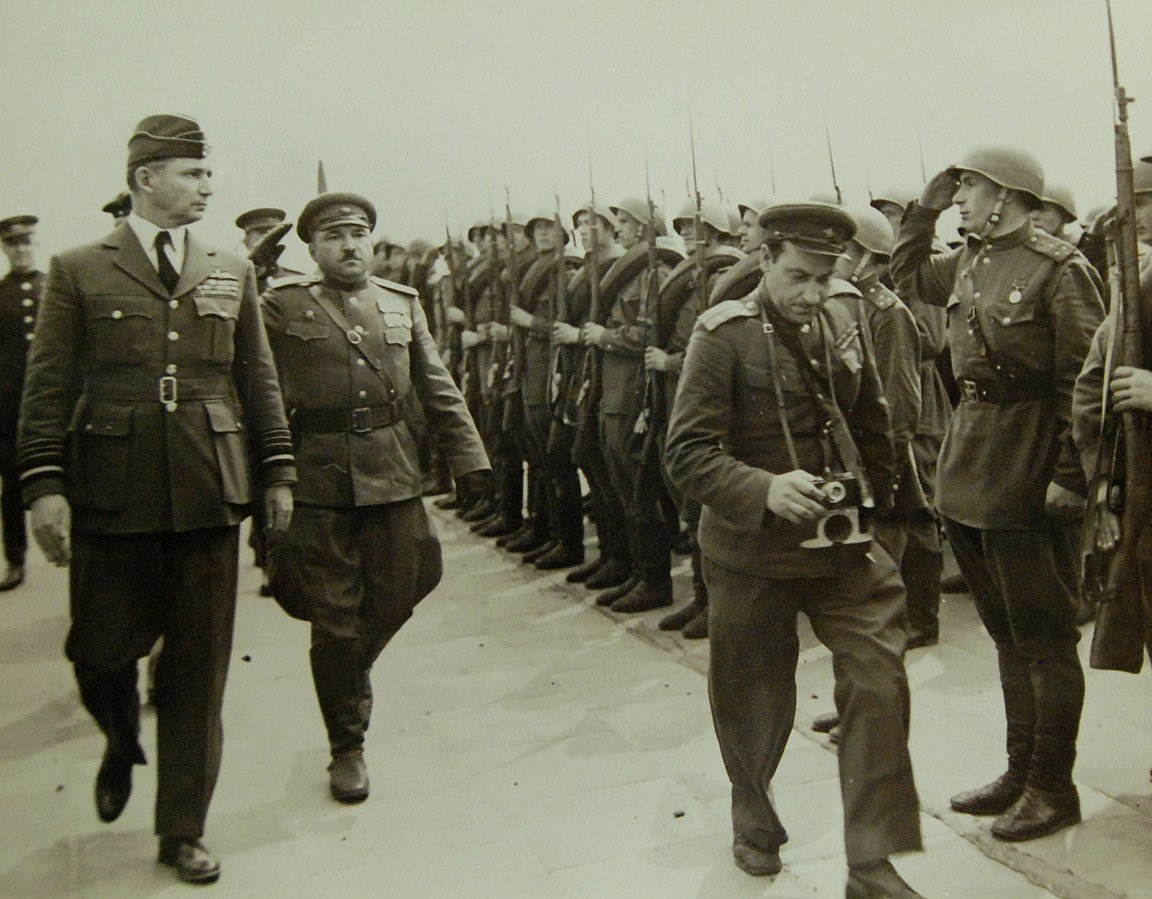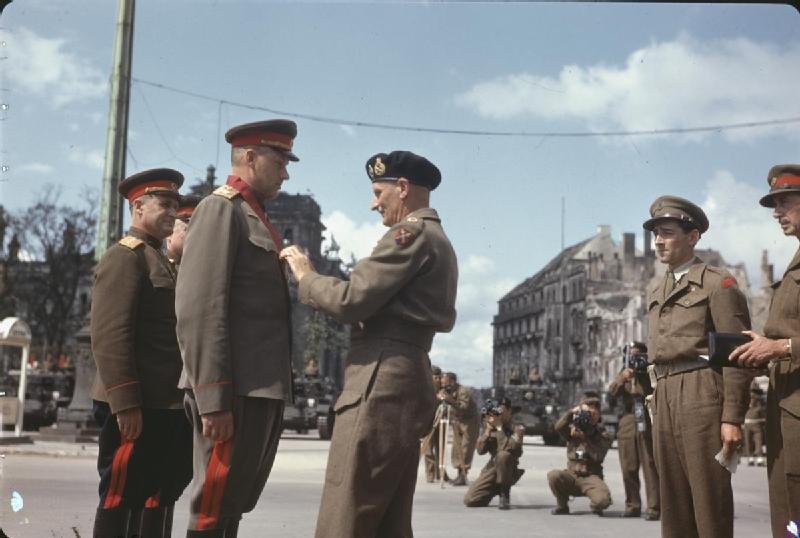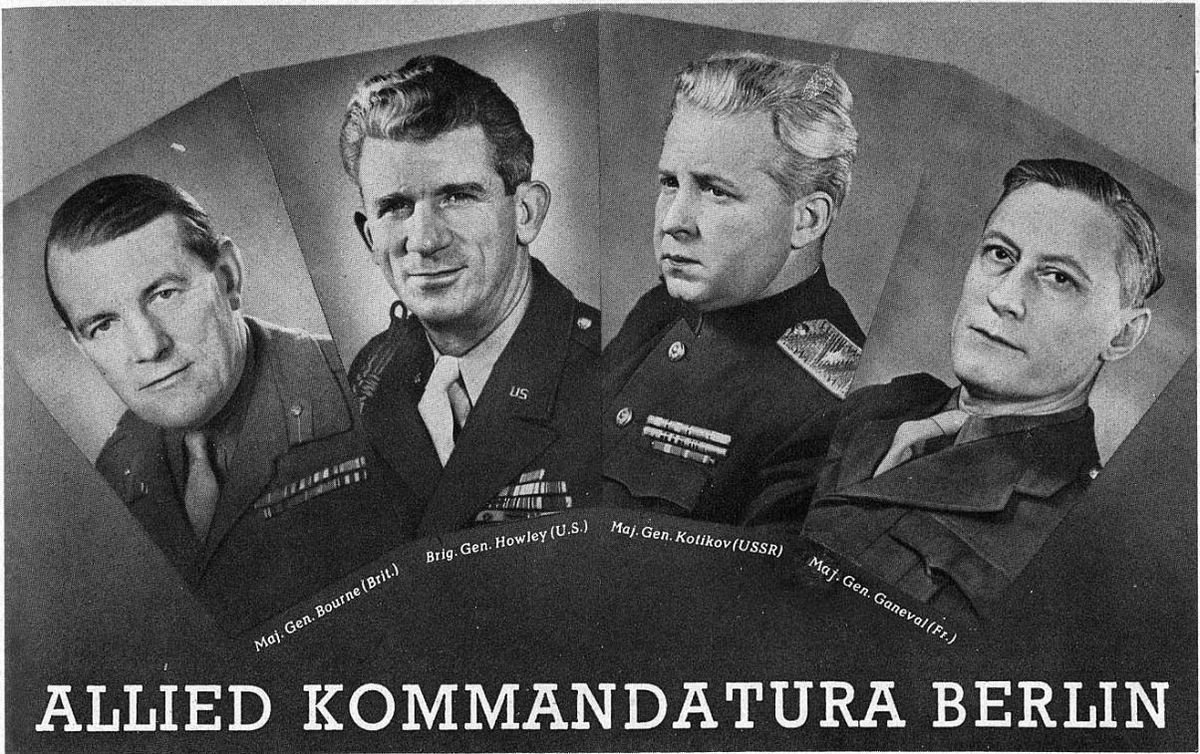Yalta and the Race to Berlin: Giles Milton (1945)
Giles Milton author of Checkmate Berlin.
As 1945 began the greatest conflict in human history was drawing to a close. But with the war in the west almost over, a new question was increasingly being asked. It was one to which Joseph Stalin, Winston Churchill and Franklin D Roosevelt all had different answers. What was going to happen next?
In this episode the million-copy bestselling author Giles Milton takes us back to some key moments in 1945. At Yalta on the Crimean peninsula and later in the ruins of Berlin, the shape of the post war world – the world we know today – was beginning to take shape.
*** [About our format] ***
By January 1945 Nazi Germany was in its final stage of collapse. After D-Day and the arduous Battle of Normandy, the western Allies had established control and then built powerful momentum in their push towards Germany from France. In the east, meanwhile, the Soviets were moving at an even more blistering pace. The city in the sights of both armies was the Nazi capital. Berlin.
With victory assured, at the start of February the Stalin, Churchill and Roosevelt, the representatives of the three great powers, headed to Yalta on the Crimean peninsula to discuss what should happen following Germany’s surrender. The meeting was outwardly a convivial affair, but throughout, as today’s guest Giles Milton explains, deep games were being played.
Churchill, Roosevelt and Stalin at Yalta in February 1945
The most effective of the diplomats at Yalta was Stalin. With Churchill drinking heavily and Roosevelt gravely ill, Stalin proposed his vision of a post-war world, which invoolved vast territorial expansion for the Soviet Union. Much of eastern Europe would be absorbed within the borders of the USSR.
Berlin, however, remained a divisive subject. While it was clear that the city was to remain far inside the Soviet zone of control, it was agreed that the old capital would be split into four areas, with one each going to the Russians, the British, the Americans and the French. As Milton puts it, Berlin was to be an island ‘surrounded by a Red Sea.’
In this episode Milton guides us through the stages of the Yalta Conference. He then takes us west to the ruins of Berlin itself in early May. There we see the ruthless, violent arrival of the Red Army and the Russians’ calculated moves to seize control.
For two full months before the Allies eventual arrival at the start of July, the Red Army had free rein to loot and to shape the narrative about the nature of the victory. By the time the charismatic American colonel Frank Howley arrived, the city had been stripped bare, misinformation about Adolf Hitler’s fate had been disseminated and some crucial geopolitical shifts had taken place.
As Milton explains, Colonel Howley was one of the first to realise the nature of these shifts. He asked bold new questions. Were the Germans still the enemy? Were the Russians still friends? One war might have ended, but to Howley at least, it was clear that another was poised to begin.
***
Giles Milton’s book Checkmate in Berlin: The Cold War Showdown That Shaped the Modern World is out now.
*** Listen to the podcast ***
Show notes
Scene One: 4 February 1945. Yalta. Opening of the Crimea Conference.
Scene Two: 2 May 1945. Berlin. Yevgeny Khaldei takes a photograph of the Soviet flag being raised over the Reichstag.
Scene Three: 1 July 1945. Berlin. Colonel Howley arrives.
Memento: A little of the Schliemann Gold.
People/Social
Presenter: Peter Moore
Guest: Giles Milton
Production: Maria Nolan
Theme music: ‘Love Token’ from the album ‘This Is Us’ By Slava and Leonard Grigoryan
Podcast partner: Ace Cultural Tours
Follow us on Twitter: @tttpodcast_
Or on Facebook
See where 1945 fits on our Timeline
About Giles Milton
Giles Milton is an internationally best-selling author of narrative non-fiction. His latest book is Checkmate in Berlin: The Cold War Showdown That Shaped the Modern World. Previous books include D-Day: The Soldiers' Story and Churchill's Ministry of Ungentlemanly Warfare, which was a Sunday Times best-seller.
Raising a flag over the Reichstag by Yevgeny Khaldei
Berlin 1945
Watch on YouTube
World War Two with Travels Through Time
The Liberation of Ravensbrück: Selma van de Perre (1945)
At the age of ninety-eight, three quarters of a century after she was liberated from Ravensbrück Concentration Camp, Selma tells her remarkable story to the New York Times bestselling author Ariana Neumann.
A War of Empires: Robert Lyman (1944)
Robert Lyman takes us to Burma, the country that was the crucible of action for a range of competing powers. In Burma the invading Japanese confronted the British, India, Chinese and Americans in a story that really was, as Lyman points out, ‘a war of empires.’
Winston Churchill and Victory in North Africa: Anthony Tucker-Jones (1943)
1943 is a year that catches Winston Churchill at the peak of his reputation as a wartime leader. Our guide on this trip to north Africa and southern Italy is the military historian Anthony Tucker-Jones.
The House of Fragile Things: James McAuley (1942)
The author and journalist James McAuley takes us back to a moment of crisis in war-time Paris. For years Jewish families like that of Béatrice de Camondo had tried to confirm their position in French society. But after the Nazi conquest of France in 1940, their status was gone.
Richard Sorge, An Impeccable Spy: Owen Matthews (1941)
In this thrilling episode, Owen Matthews takes us back to 1941 to see Richard Sorge, the ‘spy to end all spies’, operating in the most dangerous months of the Second World War.
The Katyń Massacre: Jane Rogoyska (1940)
In 1943 the discovery of a series of mass graves in the Katyń Forest near Smolensk ignited one of the most explosive rows of the Second World War. The identity of the victims was clear enough. They were the Polish military elite and significant figures from wider Polish society. But who was responsible?
Blackout Berlin: Simon Scarrow (1939)
In this enthralling episode, the Number One Bestselling novelist Simon Scarrow takes us on a walking tour of Berlin in the winter of 1939. The frozen streets and imposing buildings at the heart of Hitler’s Third Reich are also the background to Scarrow’s hugely-anticipated new novel: Blackout.




